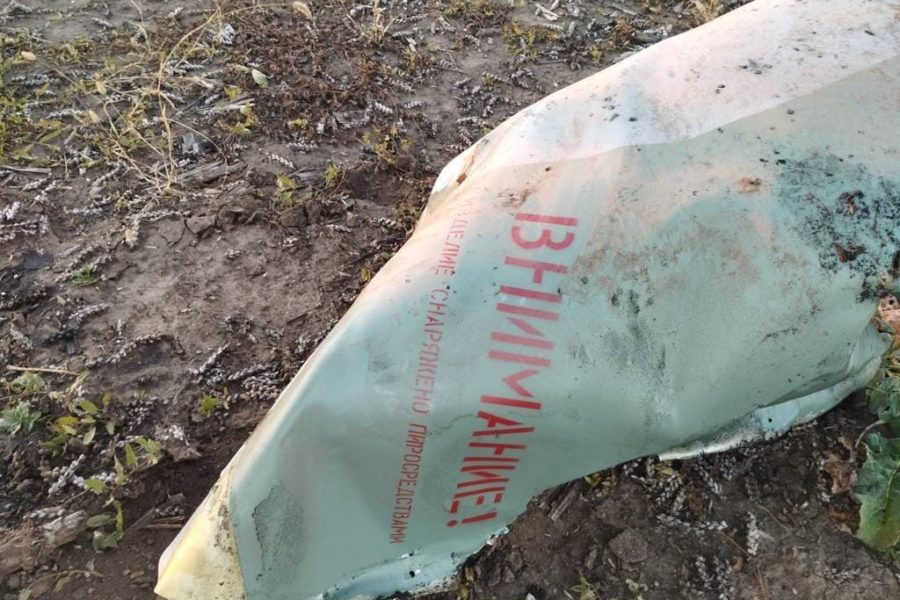A barrage of Russian missiles struck Ukraine on Nov. 15, causing widespread power outages. Pentagon press secretary Brig. Gen. Patrick S. Ryder said U.S. officials assessed that the missiles were likely standoff weapons launched from Russian aircraft outside of Ukraine as airspace over the country remains contested.
But as reports emerged that at least one Russian missile had flown into Poland, killing civilians and damaging facilities in a small town near the Ukraine-Poland border, Ryder said the Department of Defense is still assessing the situation.
Ukrainian officials characterized the missile strikes, which Reuters and other outlets reported to be mainly targeting cities and energy facilities, as the most extensive yet in Russia’s large-scale invasion of Ukraine, which began in February.
They come just days after Russian forces retreated from the city of Kherson, a major strategic blow, and as global leaders—including Ukrainian President Volodymyr Zelenskyy and Russian ministers—gathered in Indonesia for the G20 Summit.
Yet despite the large wave of missiles—Ukrainian Defense Minister Oleksii Reznikov wrote on social media that more than 90 were fired—the skies above Ukraine have not become more permissive for the Russian Air Force, Ryder said in a press briefing.
“The airspace over Ukraine continues to be contested. Again, without going into a lot of detail, I would say that we assess that these strikes are probably being conducted outside of Ukrainian territory. So in other words, standoff types of strikes,” Ryder said.
Ryder also said the Pentagon has assessed that the missiles were “launched from airborne platforms, so Russian aircraft,” but he pushed back on any assumption that Russia is leaning more heavily on its air force now.
Ryder also said he was unable to confirm how many of the missiles the Ukrainians were able to shoot down, but the Ukrainian Air Force has claimed it took down roughly 70.
The missile strike garnering the most attention, however, was the one that reportedly landed in the Polish village of Przewodów, some 15 miles from the Ukrainian border, the Associated Press reported.
The strike killed two Poles, and images of its destruction have quickly spread across social media, sparking alarm over the potential of NATO being drawn into conflict with Russia—U.S. President Joe Biden has previously pledged to defend “every inch of NATO territory.”
“We are aware of the press reports alleging that two Russian missiles have struck a location inside Poland on the Ukraine border. I can tell you that we don’t have any information at this time to corroborate those reports and are looking into this further,” Ryder said, while reiterating Biden’s pledge to defend NATO territory.
Throughout the rest of the press briefing, Ryder repeatedly declined to detail how the Pentagon would investigate the reports. He also wouldn’t speculate on what kind of response the U.S. and NATO might have if it is determined to be a Russian strike.
“We have a wide variety of means at our disposal to verify information, and so when we have something to provide, we will,” he said.
On social media, National Security Council spokesperson Adrienne Watson also wrote that the NSC is aware of the reports and is working to gather more information but cannot confirm anything at this time.
Russia, for its part, has denied that it was responsible for the strike, according to media reports.
Under Article 5 of the NATO alliance, an attack on one member is considered an attack on all, with member nations obliged to assist in whatever response is deemed necessary. Article 4, however, calls for consultation and discussion between member states before any action is taken.
